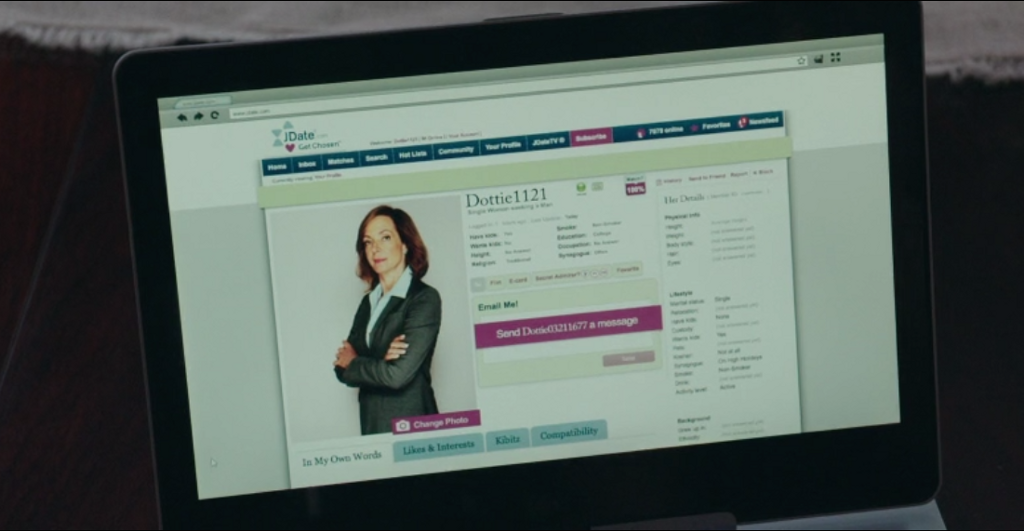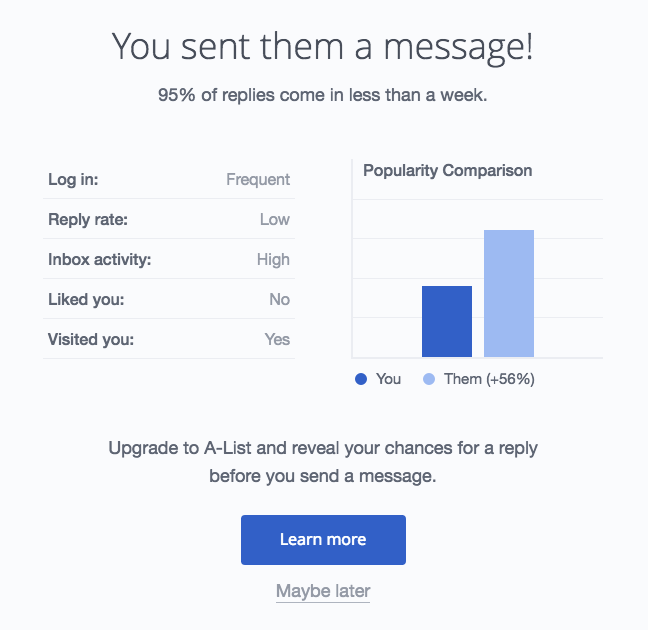In the Dating Marketplace, Every Person Has a Value—Which Means OKCupid Can Rank Us All
“Has a value” is different than “has value.” We all have value. (But OKC is still ranking us.)

I was so glad that Ester started a conversation about dating and the economy yesterday because I have been looking for a reason to tell you about OKCupid’s newest terrible feature.
Do Our Sex Lives Reflect Our Work Lives?
Twice a day, OKCupid allows you to activate a feature called “Reply Chance.” This feature attempts to anticipate whether the person you just messaged will in fact reply to you.
If you pay to join OKCupid’s A-List, you get additional Reply Chance features, one of which is the option to check Reply Chance before you message somebody. After all, you wouldn’t want to waste time with someone who was out of your league, right?
Because that’s what Reply Chance is really about. OKCupid is ranking us all, and we probably won’t be happy with what we see.

That’s my Reply Chance after messaging a person who recently signed up to OKC with a well-written and thoughtful profile indicating several shared interests.
I can guess that this person’s popularity is higher than mine in part because he recently signed up (you’re not going to message the same faces you scroll by every day, you’re going to message the new guy), but it’s also pretty clear that this person is receiving a lot of attention and, because of that, has a larger pool of interested people from whom to choose.
His value on the dating marketplace is higher than mine, and I’d like to say that it’s because eligible men in their mid-30s with well-written and thoughtful profiles are rarer than their female counterparts, but it may just also be that he is more popular than I am. (I am used to people being more popular than me.)
It gets more interesting when I started checking Reply Chance with other people. The last person with whom I had a conversation on OKC was, as I recall, roughly as popular as I was [update: as of this writing he is 32 percent more popular than I am]; a person whose message I ignored was significantly less popular. Keep in mind that we all had shared interests, so it’s not like I was ignoring a person (or messaging a person) with whom I had nothing in common. It just… worked out exactly like OKC predicted it would.
Combine this “popularity metric” with Tinder’s decision to show a person’s employer along with their profile picture and you get the sense that your value in the marketplace is in fact merging with your value as a person.
Is Your Job on Tinder’s Most Swiped Professions List?
I could definitely see an app where potential employers could check a candidate’s popularity in terms of “number of resumes submitted vs. profile views vs. interview requests,” for example. (Candidates, in turn, could pay for A-List status so they know their Interview Chance before sending in that resume.)
Meanwhile, I keep hoping I’ll meet new people by going to events and participating in stuff in person. That’s how I built my career, and that’s how I met most of the people I’ve dated.
And yeah, in eleven hours and 25 minutes I can check my OKC Reply Chance again and learn exactly how I’m valued in comparison to my male peers.
Which I’ll probably do, because I find the data fascinating.
Support The Billfold
The Billfold continues to exist thanks to support from our readers. Help us continue to do our work by making a monthly pledge on Patreon or a one-time-only contribution through PayPal.
Comments